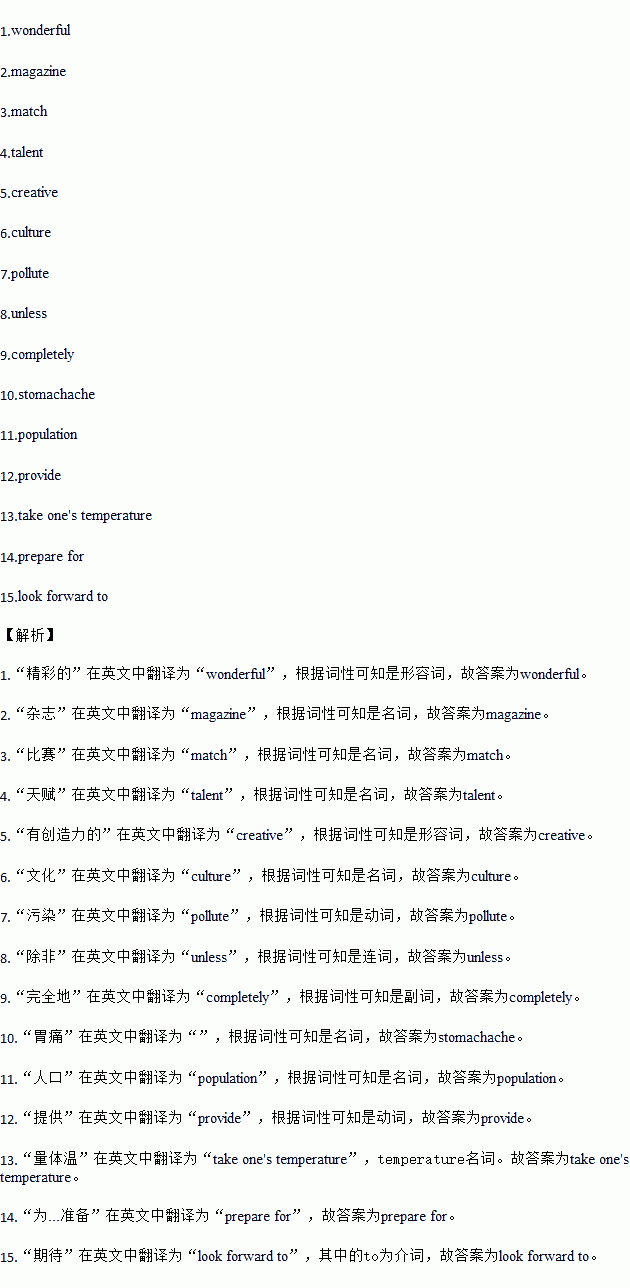题目内容
根据汉语和词性要求写出相对应的英语单词或词组。
1.精彩的 adj. __________
2.杂志 n. __________
3.比赛 n. __________
4.天赋 n. __________
5.有创造力的 adj. __________
6.文化 n. __________
7.污染v. __________
8.除非conj. __________
9.完全地 adv. __________
10.胃痛 n. __________
11.人口 n. __________
12.提供 v. __________
13.量体温(词组) __________
14.为...准备(词组) __________
15.期待(词组) __________
练习册系列答案
相关题目

